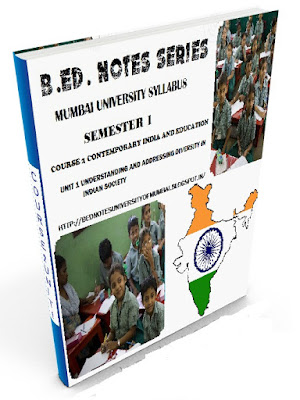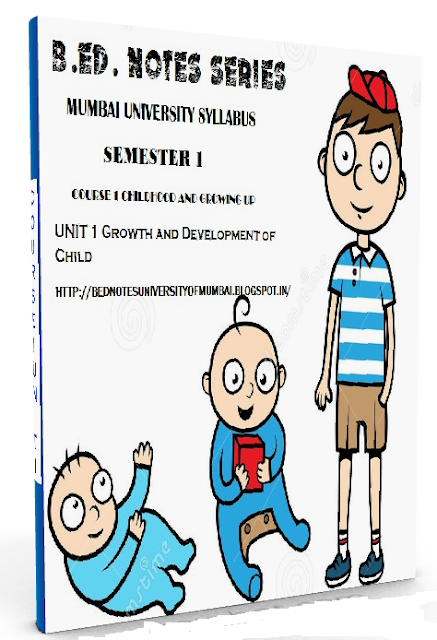Semester 1
Course Name: Course 1
Subject:-CHILDHOOD AND GROWING UP
Total Credits: 4
Total Hours: 60 hours (72 lectures of 50 minutes duration)
Total Marks: 100 (Internal = 30marks, External = 70marks)
OBJECTIVES:
1. To develop an understanding of the Principles of development.
2. To develop an understanding of the concept of development within a pluralistic society.
3. To develop an appreciation of the child development in socio- cultural context.
4. To apply the knowledge of the methods and approaches of child development.
5. To examine the theoretical perspectives of child development.
6. To develop an appreciation towards the life sketch of great psychologist
7. To develop an understanding of the growing up in a pluralistic society.
8. To analyse the Issues and Implications of changing family structure and parenting on growing up in a pluralistic society.
9. To develop an understanding of looking at one’s own self, feeling and emotion.
10. To reflect on how we relate to the world through emotions.
11. To examine the factors responsible for establishing Identity in a Real World.
Module 1. Principles of Development
Unit 1: Growth and Development of a Child - (LECTURES-8)
A) Meaning of growth and Development and its difference.
B) Stages of growth and development (Early childhood, Later childhood and Adolescence)
C) Role of school in growth and development of a child.
Task/Assignment:Case study of any school, which has a positive impact on the overall growth and development of its students.
Unit 2: Process of Development - (LECTURES-10)
A) Genetic background and Development.
B) Trends in development (Developmental direction, Differentiation and integration and Cumulative influence)
C) Maturation and Learning.
Task/Assignment: Prepare a report of three research studies, results of which suggest that genetic factors make a considerable contribution to individual’s development and behaviour.
Module 2. Fundamentals of Development
Unit 3:Context of Development: (LECTURES-10)
A) Child Development as a multidimensional concept within a pluralistic society (physical, Emotional and Social)
B) Impact of different parenting styles on child development ((4)
C) Child development in socio- cultural context: Interplay of poverty, caste, gender and tribal communities.
Task/Assignment:Select any one socio – cultural context in India and write a 1000 words essay on their parenting styles, or make a scrap book to depict child development in any one tribal community in India.
Unit 4: Methods and Approaches of studying child development(LECTURES- 8)
A) Methods: Observation (Participatory and Non- participatory) and Clinical.
B) Approaches: Cross sectional, Cross cultural, Longitudinal.
C) Merits and Limitations of the above Methods and Approaches.
Task/Assignment:Observe an adolescent and conduct a case study on his overall development.
Module 3. Perspectives of development in Psycho-Social context
Unit 5: Theoretical Perspectives (LECTURES-10)
A) Social Cognition: The social formation of the mind-Vygotsky
B) Ecological systems: UrinBronfenbrenner
C) Constructivist: Piaget’s theory of cognitive development
D) Moral: Kohlberg’s Theory of Moral Development
Task/Assignment: Present the Biography of any one psychologist using any creative technique.
Unit 6: Growing up in a Pluralistic context (LECTURES-10)
A) Childhood and growing up in the context of-
1) Marginalization,
2) Diversity
3) Stereotyping
B) Issues and Implications of changing family structure and parenting on growing up with respect to-
1) Attachment and bonding,
2) Experiences of trauma in childhood (child abuse, violence, death of a parent)
C) Interventions for Life skills in the areas of – coping with stress, communication and interpersonal skills
Task/Assignment: Prepare a programme for life skill intervention for any one issues mentioned above.
Module 4. Development of Identity
Unit 7: Self and Emotions (LECTURES-8)
A) Formation of self (Self-concept, self-esteem, Self-efficacy)
B) Emotions: Goleman’s Theory of Emotional Intelligence
C) Identity crisis- Marcian Theory
Task/Assignment: Prepare a reflective Journal on one’s own self.
Unit 8. Establishing Identity in a Real World( LECTURES- 8)
A) Influence of Media: (Depiction of children, and men and women in television and cinema, social networking)
B) Peer relations: competitions, cooperation and peer pressure
C) Role of teacher in establishing identity with respect to media and peer relations.
Task/Assignment: Review a film related to any of the above mentioned issues and submit a report.
References:
Bhatia, H. R. (1973). Elements of Educational Psychology, 5th edition, Orient Longman.
Bigge, M. L. (1982). Learning Theories for Teachers, (4th edition). New York, Harper and Row Publishers, P.P. 89-90.
Bolles, R. C. (1975): Learning Theory. New York, Holt, Rinehart and Winston, P.P. 18-19.
Chauhan, S.S. (1978): Advanced Educational Psychology, Vikas Publishing house Pvt. Ltd., New Delhi.
Dandapani, S. (2001), A textbook of Advanced Educational Psychology. New Delhi: Anmol Publications.
Dunn, R. (1983). Can students identify their own Learning Styles? Educational Leadership,40, P.P. 60-62.
Dash, M. (1988). Educational Psychology. Delhi: Deep and Deep Publication.
Duric, L. (1975). Performance of Pupils in the Process of Instruction. Bratislava, SPN, P.P. 54-90.
Duric, L. (1990). Educational Sciences: Essentials of Educational Psychology. International Bureau of Education, UNESCO, New Delhi, Sterling Publishers, P. 81.
Fontana, D. (1995). Psychology for Teachers (3rd edition). The British Psychological Society, London: McMillan in association with BPS Books.
Kundu C.L. and Tutoo D.N. (1993) : Educational Psychology, Sterling Publishers Pvt. Ltd.
Lindgren, H. C. (1967). Educational Psychology in Classroom (3rd edition). New York: John Wiley and sons.
Mangal, S. K. (1984). Psychological Foundations of Education. Ludhiana: Prakash Publishers
Mohan J. and Vasudeva P. N. (1993). Learning Theories and Teaching, In Mohan Jitendra (ed.) Educational Psychology, New Delhi, Wiley Eastern Limited, P. 146.
Oza, D. J. and Ronak, R. P. (2011). Management of behavioral problems of children with mental retardation. Germany:VDM publication.
Papalia D. E., and Sally, W. O. (1978). Human Development. McGraw Hill Publishing Company
Phens, J. M., and Evans, E. D. (1973). Development and Classroom Learning : An Introduction to Educational Psychology. New York: Holt Rinehart and Winston Inc.
Tessmer, M., and Jonassen, D. (1988). Learning Strategies: A New Instructional Technology. In Harris Duncun (1988) Education for the New Technologies, World Year Book of Education. London: Kogan page Inc
Skinner, E. C. (1984). Educational Psychology-4th Edition. New Delhi: Prentice Hall of India Pvt. Ltd.
Spinthall, N., and Spinthall, R. C. (1990). Educational Psychology 5th Edition. - McGraw Hill Publishing Company.
Cole, M., (1996). The Development of Children. New York: Worth publishers
Crain, W., (2005). Theories of Development (5th Edition). Pearson
Holt, J., (1990). How children fail. Penguin books; BachcheAsafalKaiseHoteHain, Eklavya
publications.
Kanga, F., (1991). Trying to Grow. New Delhi : Ravi Dayal Publishers
Mukunda, K. (2009). What did you ask at school today? Noida: Harper Collins Publishers.
Munsinger, H., (1975) (edited) Readings in Child Development. New York: Holt Rinehart Winson
Sharma, N., (2003).Understanding Adolescence. New Delhi: NBT
Wadia, H. Confining childhood in India. Web source: http://infochangeindia.org/index2.php?option=com_content&do_pdf=1&id=8691·
Weiner.M.,(1995). The child and the state in India: Child labor and education policies in comparative perspective. Oxford University Press



